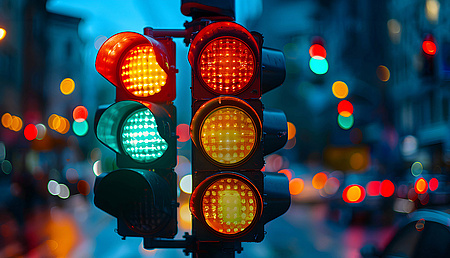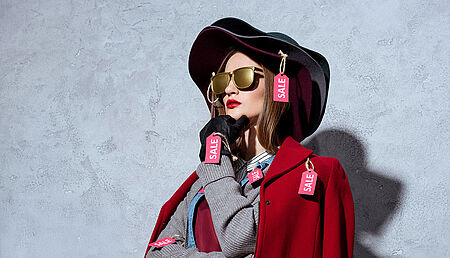
Trademarking a slogan - the why and how
The right slogan can be of tremendous value to your brand identity, and so learning how to trademark one is a vital Intellectual Property (IP) lesson. Let us take a detailed look at the surprisingly complex status of catchphrases in IP law.
What exactly is a slogan? The definition provided by the United States Patent and Trademark Office (USPTO) — "a brief attention-getting phrase used in advertising or promotion" — while accurate, does little to convey its potential business impact. And this impact is worth defending. So, if you have devised a slogan but have not yet begun the process of registration for trademark protection in all relevant jurisdictions, it behooves you to get underway.
The world-renowned trademark experts at Dennemeyer & Associates Italy examine the value and applications of slogans in the modern marketplace and review the essential steps for submitting a successful application and maintaining your trademark once registered.
The fundamental value of a slogan
A slogan (also known as a tagline, catchphrase, payoff or motto) can have considerable marketing power. It immediately evokes an association with a product, service, brand identity or company name per its creators' intent. The effect is almost like shared memory. Once a famous-enough slogan has been around for some time, not only does mentioning the item, service or organization often cause someone to say (or think) the slogan, but the reverse is also true.
For example, if your friend says, "Just do it," and is not referring to Nike in any way, you will quite likely think of the athletic apparel company regardless, even if just for a second. If they said, "Nike," you might reply, "Just do it." Nike's "swoosh" logo ultimately has greater value for its brand because it transcends language, but the slogan is not far behind.

Though slogans are inherently language- and culture-dependent, this can be leveraged with savvy marketing. Audi's "Vorsprung durch Technik" (Advancement through technology) has been registered as a European Trademark since 2001. Even if its literal meaning is not understood in many markets, the direct link to German engineering carries strong emotional associations.
Consider some other well-known slogans:
- The trademarked tagline of the De Beers Group, "A diamond is forever," does not quite have the same cross-generational impact as Nike's. Still, its worldwide success in equating diamond rings with marriage proposals has impacted both culture and economics.
- Verizon's "Can you hear me now?" ad campaign of the early 2000s thrust the wireless carrier to the fore by putting a positive spin on a common, frustrating experience.
- Visa used "It's everywhere you want to be" for 20 years while expanding its reach beyond many competitors. The financial services company refreshed its famous slogan in time for a highly successful partnership with the 2014 FIFA World Cup.
- American Express left the rest of the financial world behind with its "Don't Leave Home Without It" advertisements that ran for some 25 years, starting in 1975.
- BMW's slogan, "The ultimate driving machine," communicates everything the luxury German automaker wishes its audience to know.
- Ronseal's "It does exactly what it says on the tin" enjoys the exclusive cachet of being one of the few trademarked slogans to have entered the Oxford Dictionary of Idioms.
- Apple's "Think Different" was relatively short-lived (1997-2002), but endured in the mind of the public thanks to the images of iconic 20th-century personalities used in its launching ad campaign "To the crazy ones."
Many companies either have a handful of different slogans or change their primary tagline from time to time. But whether they keep them long-term or not, organizations almost invariably establish trademark registrations for these valuable nuggets of IP.
How can a slogan be eligible for trademark protection?
Registering your slogan with your local trademark office is not as simple as filing a trademark application and paying the associated fees. You need to meet certain criteria as most other methods of IP protection, such as patents or design rights, cannot be applied to slogans.
First, you must establish that your phrase is more than a mere description of a product, service, business or individual. For example, Bristol-Meyers Squibb tried to trademark the phrase "The Headache Medicine" as the tagline for its Excedrin drug. However, because those words were simply descriptive of the purpose of the product, they could only register the slogan in the United States as part of a mark that included the word "Excedrin."

It is essential for your trademark filing strategy to be fully aligned with your marketing goals. Consider where and for how long you intend to use a slogan before moving ahead with registration. Advertising campaigns are temporary – a trademark can stay the course. Keep in mind that rapid action towards registration may be required if a slogan unexpectedly achieves widespread recognition.
Originality that overcomes descriptiveness is therefore crucial in slogans, and it is essential for anyone trying to trademark a slogan in any EU member state. Though very few nations would be considered permissive about what constitutes "distinctiveness," Japan and the United Kingdom are known to be quite strict on this benchmark. Unbridled creativity is your best bet to appeal to all customers, both in the marketplace and in Intellectual Property Offices (IPOs).
Even if a catchphrase is not inherently distinctive and creative from the get-go, certain IPOs in the United States, EU and elsewhere will consider its registration provided the owner can demonstrate that the phrase meets the threshold of secondary meaning. This condition is achieved when a phrase transcends the literal meaning of its constituent wording and becomes associated by the public with a product or brand through constant use.
Perhaps the trickiest thing about secondary meaning is that there is no hard and fast rule governing when it has been established. It is not part of any trademark law because it cannot be easily quantified. Duration of use, marketing expenditure and numbers of advertisements can all be used alongside target-market surveys to illustrate whether a slogan has permeated the public consciousness – at least to the satisfaction of the relevant IPO. But the very nebulousness of secondary meaning only reinforces how decisive it will be for you to use your slogan publicly in conjunction with your product, service or organization as soon as you devise it. If you begin to see the phrase has some traction with customers, you could be on to something.
Registration for your slogan
For the most part, trademarking a slogan is no different from attempting to register a logo or company name. First, conduct an IP search using comprehensive trademark repositories like the Global Brand Database of the World Intellectual Property Organization (WIPO) to look for registered marks overly similar to your own. Once you are sure of your slogan's novelty, file a trademark application according to the laws of all jurisdictions in which you plan to use the IP. Specify the goods, services or product line the slogan is meant to be associated with; in jurisdictions that require it, include a general statement of use and provide examples of the slogan's public use (e.g., in advertisements for your business) and pay all appropriate fees.

If your slogan is not fundamentally distinctive or fanciful, the requirement of secondary meaning can be a difficult one to meet. Typically, it takes at least five years of public use for a marketing slogan to imprint itself upon the public consciousness.
Always keep in mind: Exactitude is everything when filing. If you combine the slogan with your logo, the two assets would be registered as one mark. Unless the constituents are separately registered or have their own distinctiveness, someone could then use either your logo or your slogan without it strictly being trademark infringement. Depending on the jurisdiction, it could be harder to convince a judge that it is a violation of exclusive rights.
Protecting your slogan
You can start to weave a safety net for your slogan even before it has been formally approved for trademark status. One way to do this is to file an international trademark application through the WIPO's Madrid System on the basis of your first domestic filing. As long as your initial application is approved, the Madrid filing will extend the protection to all countries you designated in the WIPO application, subject to overcoming the usual absolute and relative grounds of refusal specific to each jurisdiction.
A trademark, unlike a patent, offers indefinite protection as long as its registrant regularly renews the mark by verifying ongoing use (or acceptable non-use) in jurisdictions that require a statement or evidence to this purpose and paying the necessary fees at intervals dictated by local law.
Your newly trademarked slogan could slip through the deadline cracks if you are juggling many assets in your IP portfolio. The trademark professionals at Dennemeyer & Associates Italy have all the knowledge and expertise necessary to ensure this does not happen. With world-class specialists by your side, you can be assured your slogan – together with your other trademarks and IP – is protected by the full force of the law.
Filed in

Slight variations in evidence can lead to vastly different outcomes in disputes — and prior decisions cannot be relied on as indicators of success.



